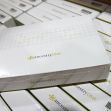A San Francisco woman is planning to sue the city after her DNA, which was collected during a sexual assault, was used against her in an unrelated property crime.
The woman, who has chosen to remain anonymous, accuses the San Francisco police department of abusing her trust and DNA. In 2016, the woman was the victim of a sexual assault and domestic violence case and as part of the investigation, she had a DNA rape kit conducted. The DNA collected from the kit was then stored in the San Francisco Police Department crime lab database. According to District Attorney Chesa Boudin, the woman was connected through this database to a burglary that occurred in late 2021. Her DNA, which was collected from her rape kit, was the DNA used to identify her involvement in the burglary.
The woman and her attorney, Adante Pointer, detail that this method of police investigation Is a violation of the rights of sexual assault survivors. Pointer shared in the statement, “This is the ultimate betrayal and re-victimization at the hands of authorities and people that she sought help and protection from."
After becoming aware of how the woman was connected to the burglary crime, DA Boudin eventually dropped the felony property crime charges against her. Despite the dropped charges, the victim's story has prompted national outcry at how DNA collected from sexual assault and domestic abuse victims is used against those very individuals in the future.
San Francisco police chief Bill Scott has publicly shared his disapproval of using DNA samples obtained from victims against them in later criminal investigations. In a police commission meeting, Scott shared that he had discovered 17 crime victim profiles were created with 11 of them using DNA collected from rape kits. He added that the woman behind the planned lawsuit was the only individual to be arrested because DNA pulled from a rape kit connected her to a later crime.
Scott announced that there would be an internal investigation into the incident and that after a complaint was filed by the district attorney's office, the police department changed its formal operating procedure.
Rachel Marshal, a spokeswoman for the district attorney, has shared with NPR that the manner in which the burglary case was investigated was a violation of the woman's Fourth Amendment rights which protects against unreasonable searches and seizures.
In announcing news of the planned lawsuit, Pointer shared that the woman did not want to come forward for an interview because she felt “violated again” after her DNA collected from a rape kit was used against her. The woman did share with local news outlet KTVU-TV “It was a slap in the face.” She added, “It’s just unbelievable. I’m still having a hard time wrapping my head around this right now. It’s just not a good feeling.”
Pointer and his client have filed a motion with their intent to file a suit and are now waiting out the mandatory 45-day period which allows law enforcement to respond to the motion.
This planned lawsuit follows a recent measure introduced by San Fransisco State Senator, Scott Wiener. If passed, the bill would make it illegal for law enforcement to use DNA gathered from sexual assault victims against those very same victims.






